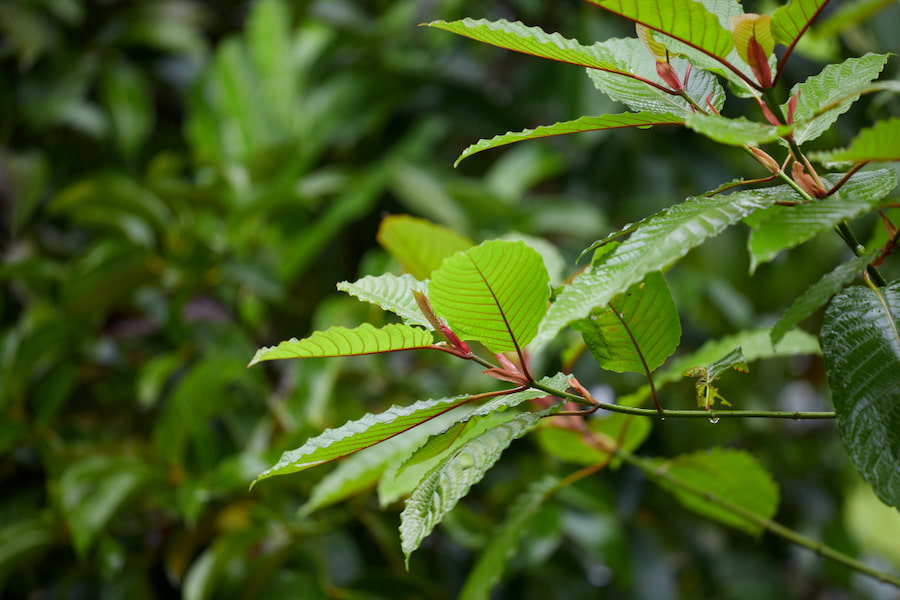If you’re a business or individual involved with kratom, you undoubtedly know about the stigma that surrounds it. Discussed less often are the potential benefits kratom provides to the communities it’s grown in—the protection of the environment and economy in particular. Kratom provides a sustainable way to benefit both the hard-working kratom farmers that grow it and the Southeast Asia rainforests it’s grown in.
Interested in learning how? Explore this article for more information on how crucial kratom is to the environment and economy of Southeast Asian communities.

Kratom offers a sustainable economic activity for many Southeast Asian communities. Many farmers rely on kratom cultivation for their livelihood.
How Does Kratom Help Sustain the Economy?
Although kratom can be found in the countries of Malaysia, Thailand, and Indonesia, it’s estimated that nearly 90 percent of the world’s supply (and about 95% of the United States’ supply) of kratom comes from Indonesia. In other words, Indonesia is a major contributor to the kratom industry and is one of the main kratom exporters internationally. Kratom sales from this country are believed to be a boost to not the Indonesian economy, but to the U.S. economy as well.
Currently kratom cultivation accounts for tens of thousands of square meters of land across Indonesia, and isn’t just isolated to one area. Instead, kratom farming is spread out over many growing districts and hundreds of villages across Indonesian provinces. It’s thought to be a vital part of the economy in Indonesia, and recent reports suggest that up to 250,000 households may be “very dependent on the kratom industry.”
Beyond Indonesia, kratom offers a sustainable economic activity for many local communities. Many farmers rely on kratom cultivation for their livelihood, with some sources suggesting that kratom may be the “only reasonable support for their families.” In fact, in Indonesia, kratom is largely viewed as a cash crop, and it’s believed that countries like Thailand are also keen to tap into the lucrative properties of the plant. Kratom farming has even been described as a means for families to improve their quality of life through economic prosperity.
Looking Forward to the Future
One significant struggle kratom cultivators face is keeping their children involved in the “family business” of farming when other professions exist. Luckily, kratom is seen as a more stable crop that doesn’t experience the same fluctuations that other products do. A thriving farming economy may mean that farming families can better entice their children to stay engaged in the industry and carry on their legacy.
Unfortunately, kratom legislation is impacting the industry and is threatening the economy of Indonesia. Recent alerts from the Food and Drug Administration (FDA) have severely restricted kratom imports from Indonesia to the U.S. In short, the alerts put kratom farmer’s livelihoods at stake, and may already be having a negative impact on the lives of those who cultivate kratom to support their families. If these restrictions continue or intensify, it could have devastating consequences for the economy and the environment (discussed in more detail below).
Fortunately, the Presidents of both Indonesia and the United States of America met recently to discuss economic and environmental difficulties, and new initiatives have been entered into to ensure a “prosperous, secure, and resilient Indo-Pacific” and “economic prosperity.” Pro-kratom leaders are hopeful that these efforts will explicitly include kratom someday soon.

Unlike other crops that can significantly damage the rainforests, kratom is a natural part of the local ecosystem and can actually benefit the environment.
How Does Kratom Help Sustain the Environment?
Like leaders in the U.S., Indonesian officials are concerned about the climate crisis. In fact, Indonesia is ranked in the top third of countries that are at highest risk for climate hazards. Beyond being more vulnerable than some other countries to the impacts of climate change, Indonesia is also ranked in the top 10 among the world’s worst greenhouse gas emitters.
The culprit for these emissions? Primarily, sources point to deforestation due to agriculture and palm oil plantations. Sadly, it’s likely that, should kratom face further legislative restrictions, farmers would convert land initially used to cultivate kratom (over 20 million trees) into land for producing palm oil. Since deforestation of parts of the Indonesian rainforest would be a necessary part of this process, the environmental impacts of banning kratom or intensifying import restrictions could (quite literally) be catastrophic.
One possible solution? You guessed it— kratom farming. Unlike other crops that can significantly damage the rainforests, kratom can actually benefit the environment during its growing process. Here are some specific features about kratom that make it particularly environment-friendly:
- Flourishes in the wild
- Requires minimal cultivation
- Harvested on a predictable rotation
- Trees rarely cut down (meaning ecosystem can stay more stable)
Besides being a dependable source of income for farmers, kratom is a climate-friendly crop that promotes more sustainable practices for the people and animals that live in the areas where it is grown. Many kratom farmers are also known to uphold age-old traditions, such as harvesting only what is needed.
Even if you’re a kratom-lover who’s not normally environmentally inclined, author Wade Paul for Kratom.org puts it best: “Since kratom grows in the rainforest, it gives individuals who wouldn’t be so keen on preserving the rainforest motivation to keep this environment intact.”
A Word on Legal Restrictions
As with economic prosperity, a change in governing policies and restrictions may be necessary to help protect the Indonesian rainforests. Currently, harsh legal restrictions make it difficult for reputable, environmentally-minded companies to prosper. These intensifying restrictions simultaneously promote a black market industry where brokers value farmer’s crops unfairly, meaning they may not be paying kratom farmers enough for their crop or protecting the environment during the growing process. Better regulations could cause benefits across the board, protecting both the lives of consumers and the livelihood of those cultivating kratom.
Is Fair Trade in the Future?
Reputable kratom sellers are trending towards transparency, and encouraging customers to look for products from companies committed to paying kratom farmers a fair price. Not too far in the distant future, you may notice more kratom manufacturers committed to fair trade practices. This can create more clarity in the buying process, and allow you to select or sell products that better align with your values.

Reputable kratom sellers are trending towards transparency, and encouraging customers to look for products from companies committed to paying kratom farmers a fair price.
A Final Word on Boosting Environments & Economies with Kratom
Although there’s lots of room for improvement when it comes to legislation, kratom farmers and supporters are looking forward to a future where kratom can elevate the economy and environment even more than it already has. Kratom cultivation is not just a means of profit— it’s a way for farmers and families to support themselves. As the saying goes, you can “vote with your dollars” as a buyer or business by choosing to shop with a reputable kratom company.
Invested in kratom’s potential? Become a wholesale partner today! Your interest in protecting Indonesian economies and rainforests will be rewarded with a $50 credit towards your first order when you fill out our wholesaler form.
References
American Kratom Association. The American Kratom Association Joins Indonesian President Widodo in Plea to President Biden to Allow Free Trade of Kratom. Americankratom.org. Published November 2023.
Cooper A. Is The Kratom Market Compliant With Indonesia’s Environmental Policies. Blueandgreentomorrow.com. July 2020.
Jaeger K. Indonesia’s President Urges Biden To Lift FDA’s Kratom Import Restrictions, Advocacy Groups Say. Marijuanamoment.net. Published November 2023.
Kantor Staf Presiden (The Official Website of the Executive Office of the President). US Association Initiates Partnership In Kratom Export With Indonesia. Ksp.go.id. Published August 2022.
Leiserowitz A, Rosenthal S, Verner M, Lee S, Ballew M, et al. Climate Change in the Indonesian Mind. Climate Communication.yale.edu. Published October 2023.
Paul W. How Kratom Can Help With Global Warming. Kratom.org. Published 2022.
Seminole L. Kratom’s Role in Indonesia’s Environment and Economy. Kavashack.com. Published November 2020.
Shrivell B. Climate Change in the Indonesian Mind. Environment.yale.edu. Published October 2023.
The Human and Economic Impacts of the Kratom Industry In the United States and Indonesia. Static1.squarespace.com. Accessed 2023.
The White House. FACT SHEET: President Joseph R. Biden and President Joko Widodo Announce the U.S.-Indonesia Comprehensive Strategic Partnership. Whitehouse.gov. Published November 2023.
World Bank Group. Indonesia. Climateknowledgeportal.com. Published 2021.




